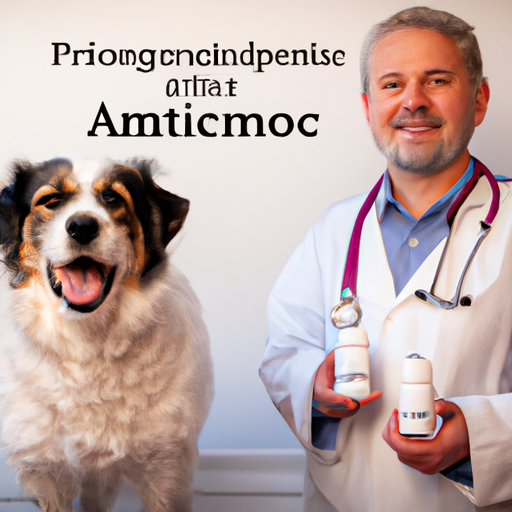Understanding Pyometra
Pyometra in dogs is a condition you wouldn’t wish to face as a dog owner. It’s a severe bacterial infection that affects the uterus, leading to its enlargement and sometimes rupture. As a caregiver, it’s essential that you’re aware of this condition, its symptoms, and how it can be treated.
Antibiotics Used in Treating Pyometra
When it comes to treating pyometra, antibiotics are usually the first line of defense. Here are some of the most commonly used ones:
- Cefazolin
- Gentamicin
- Enrofloxacin
- Amoxicillin-clavulanate
Among these, Cefazolin and Gentamicin are often used together for their synergistic effects. Enrofloxacin is a fluoroquinolone that’s particularly effective against gram-negative bacteria, while Amoxicillin-clavulanate is a broad-spectrum antibiotic.
| Antibiotic | Action |
|---|---|
| Cefazolin | Targets gram-positive bacteria |
| Gentamicin | Aminoglycoside effective against gram-negative bacteria |
| Enrofloxacin | Fluoroquinolone effective against gram-negative bacteria |
| Amoxicillin-clavulanate | Broad Spectrum antibiotic |
The Role of Surgery
While antibiotics can help control the infection, they’re often not enough. In most cases, a surgical procedure known as an ovariohysterectomy, or spaying, is required. This involves the complete removal of the uterus and ovaries. As a caregiver, it’s important to understand that this surgery, while invasive, can save your dog’s life.
Aftercare and Recovery
Post-surgery, your dog will need plenty of rest and care. This is where you, as a caregiver, play a crucial role. Here are some things you’ll need to do:
- Ensure your dog is comfortable and well-rested.
- Follow the vet’s instructions regarding medication and wound care.
- Keep a close eye on your dog’s behaviour and appetite, and report any changes to the vet.
Frequently Asked Questions
Q: Can pyometra be prevented?
A: Yes. Spaying your dog before her first heat cycle can significantly reduce the risk of pyometra.
Q: How long does it take for a dog to recover from pyometra surgery?
A: Recovery times can vary, but most dogs start to improve within a few days after surgery.
Q: Can pyometra be treated with antibiotics alone?
A: While antibiotics can help manage the infection, surgery is usually necessary to fully treat pyometra.
Q: Is pyometra contagious to other dogs?
A: No, pyometra is not contagious. It’s a bacterial infection that occurs within the uterus.
As a caregiver, your role in your dog’s health and well-being is paramount. Stay informed, and remember, early detection and treatment of pyometra can save your dog’s life.



